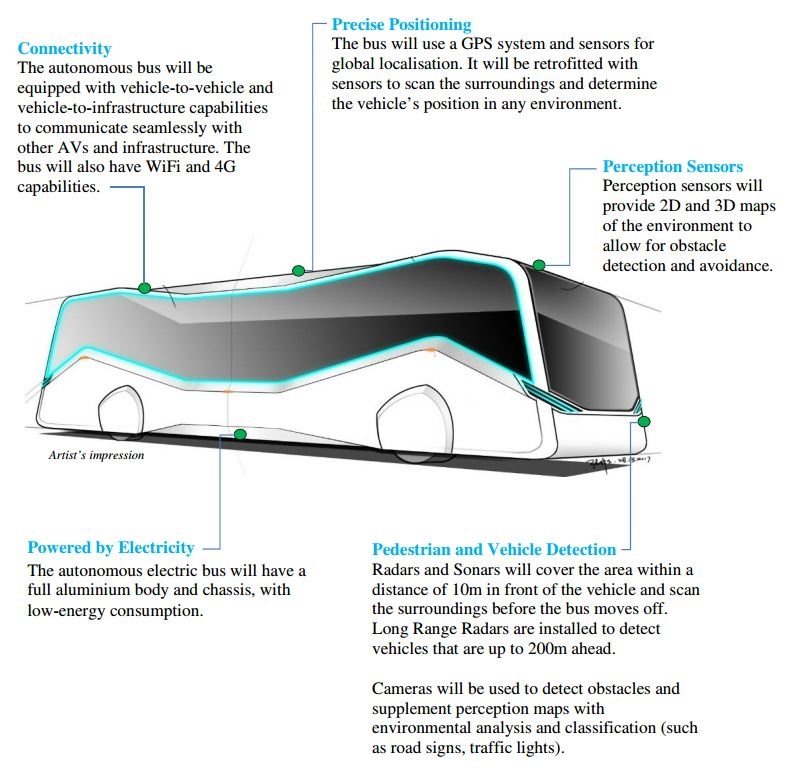According to LTA, to encourage more people to walk, cycle and take public transport, it had provided convenient shared transport options for commuters. This includes higher-capacity vehicles, such as buses, to ferry people to their destinations in a timely manner, especially during the morning and evening peak hours. ST Kinetics’ proposal to develop and trial autonomous buses will enable it to explore if AV technology can meet this need.
“Currently, most AV technology developers are focusing their efforts on developing self-driving cars. Singapore’s need for high-capacity vehicles to address commuters’ peak-hour demands presents an opportunity for companies such as ST Kinetics to develop autonomous buses to address this latent demand,” said Lam Wee Shann, Chief Technology Officer, LTA.
“This is also in line with the whole-of-government effort to explore and apply smart technologies to improve our lives. We are excited to partner ST Kinetics to develop autonomous electric buses, that if successfully deployed, will benefit commuters and greatly change the way we travel,” Shann added.
Trials could be done in public roads too
ST Kinetics will develop and integrate the AV technologies onto two 40-seater electric buses that can be deployed to serve fixed and scheduled services for intra- and inter-town travel in the future. To navigate autonomously, the buses will use a satellite-based Global Positioning (GPS) System and a suite of sensors to scan and determine their location and immediate surroundings.

The buses will also have radars and sonars that can detect other vehicles and pedestrians up to 200m ahead. In addition, ST Kinetics is also working to improve the autonomous buses’ ability to navigate in heavier rain conditions, up from the current 10mm/h to 30mm/h.
The three-and-a-half year project will see the autonomous buses being tested in various environments. LTA is working with stakeholders such as the National University of Singapore (NUS) as well as JTC to look at suitable trial locations. The initial testing will be conducted during off-peak periods at an industrial area where the road infrastructure is less complex. In the longer term, it is envisaged that the trial could be extended to public roads in towns to enhance intra-town travel.
This is the fourth such agreement signed, in addition to LTA’s ongoing partnerships with the Energy Research Institute to develop and trial autonomous bus technology, as well as with Delphi and nuTonomy to conduct autonomous mobility-on-demand trials.
